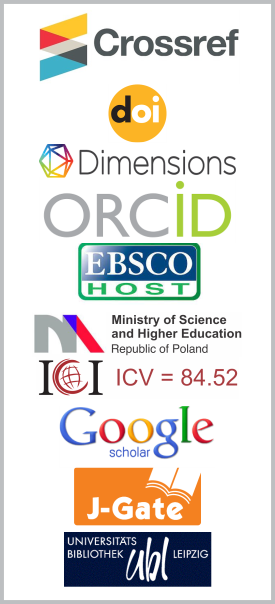Stochastic Derivation of an Integral Equation for Probability Generating Functions
DOI:
https://doi.org/10.26713/jims.v5i3.222Keywords:
Integral equation, Stochastic models, Risk theoryAbstract
Functional, integral and differential equations of transformed probability generating functions are generally recognized as powerful analytical tools for establishing characterizations of discrete probability distributions. The present paper establishes a characterization of the distribution of an important integral part model by incorporating an integral equation based on three fundamental transformed probability generating functions. Interpretations of such a characterization in analyzing and implementing information risk frequency reduction operations are also established.Downloads
References
P. Artikis and C. Artikis, Stochastic derivation of an integral equation for characteristic functions, Journal of Informatics and Mathematical Sciences 1 (2009), 113-120.
T. Artikis, S. Loukas and D. Jerwood, A transformed geometric distribution in stochastic modelling, Mathematical and Computer Modelling 27 (1998), 43-51.
C. Goldie, A class of infinitely divisible distributions, Proc. Cambridge Phil. Soc. 63 (1967), 1141-1143.
R. Gupta, On the characterization of survival distributions in reliability by properties of their renewal densities, Communications in Statistics Theory and Methods 8 (1979), 685-697.
Y. Haimes, Risk Modelling, Assessment and Management, John Wiley & Sons, Inc., Hoboken, New Jersey, 2004.
J. Keilson and F. Steutel, Mixtures of distributions, moment inequalities and measures of exponentiality and normality, Ann. Probab. 2 (1974), 112-130.
N. Krishnaji, A characteristic property of the Yule distribution, Sankhya A 32 (1970), 343-346.
P. Medgyessy, On a new class of unimodal infinitely divisible distribution functions and related topics, Studia Scientiarum Mathematicarum Hungarica 2 (1967), 441-446.
F. Steutel and K. van Harn, Infinite Divisibility of Probability Distributions on the Real Line, Marcel Dekker, New York, 2003.
Downloads
How to Cite
Issue
Section
License
Authors who publish with this journal agree to the following terms:- Authors retain copyright and grant the journal right of first publication with the work simultaneously licensed under a CCAL that allows others to share the work with an acknowledgement of the work's authorship and initial publication in this journal.
- Authors are able to enter into separate, additional contractual arrangements for the non-exclusive distribution of the journal's published version of the work (e.g., post it to an institutional repository or publish it in a book), with an acknowledgement of its initial publication in this journal.
- Authors are permitted and encouraged to post their work online (e.g., in institutional repositories or on their website) prior to and during the submission process, as it can lead to productive exchanges, as well as earlier and greater citation of published work.




